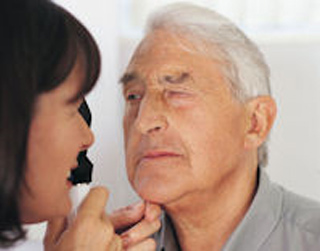
During the research, investigators aimed to analyze visual field loss because of an interruption in the pathways. This interpretation probably delivers an image from the eye to the brain for processing. It was pointed out that damage to the nerve supply may manage eye movement, which is also a common problem after stroke. Damaged eye movement seems to affect the ability of following a moving object or read words on a page. Patients with such complications are supposedly recommended to include exercises that strengthen the eye muscles when looking at objects close to the face and prisms which can be fitted on glasses for joining double vision.
“If a stroke patient has vision problems it can impact on the rest of their rehabilitation in a variety of ways, including reading difficulties and moving around properly. It is vital that health care services are aware of the different vision problems that stroke patients can face and have clear guidelines on identifying where the condition originates, whether it is in the eye, brain or the connecting pathways,†alleged Dr. Fiona Rowe, from the University’s Directorate of Orthoptics and Vision Science.
Experts suggest that novel assessment methods can be introduced for keeping an appropriate check on vision problems. Other vision problems apparently comprise central vision loss, a complete loss of vision in one or both eyes, and ‘higher’ visual processing problems. Among patients with ‘higher’ visual processing problems, the image is probably formed by the eye and transmitted to the brain, but cannot be interpreted accurately. Many a times patients may fail to connect difficulties of reading with the after-effects of stroke and hence goes unidentified.
The research will be published in the International Journal of Stroke.
